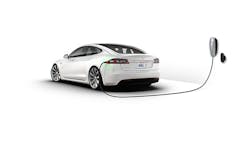Tesla Autopilot System Under Investigation by Germany
Germany said on Oct. 8 said it was still investigating the operation of the autopilot system on cars made by electric automaker Tesla, as German media reported an internal ministerial report called it "dangerous.”
According to the weekly news magazine Der Spiegel, an internal ministry report had concluded that the autopilot function represents "a considerable danger for traffic," especially because the driver is not warned when the autopilot system is not able to handle a situation.
"The final evaluation of the transport ministry concerning the autopilot functioning of Tesla Model S cars is not yet ready," the ministry said, denying the reports that it had already concluded the probe.
Available for Tesla's Model S electric cars since October 2015, the driverless autopilot system has faced global scrutiny following fatal crashes in northern China in January and in the US state of Florida in May.
In September a Tesla electric car crashed into a tourist bus on a motorway in northern Germany, after the driver who was the only one slightly injured claimed he had activated the autopilot system.
A Tesla spokesperson at the time said the driver told the company the autopilot was functioning properly and its use was unrelated to the accident.
And on Oct. 8 a Tesla spokesman said: "We have always been clear with our customers that Autopilot is a driver’s assistance system that requires the driver to pay attention at all times."
"Just as in an airplane, when used properly, autopilot reduces driver workload and provides an added layer of safety when compared to purely manual driving," he added.
Consumer activists have called on the company, founded by PayPal billionaire Elon Musk, to disable the autopilot feature until it is updated to detect whether the driver's hands are on the steering wheel during operation -- as the company says should be the case.
Copyright Agence France-Presse, 2016
About the Author
Agence France-Presse
Copyright Agence France-Presse, 2002-2025. AFP text, photos, graphics and logos shall not be reproduced, published, broadcast, rewritten for broadcast or publication or redistributed directly or indirectly in any medium. AFP shall not be held liable for any delays, inaccuracies, errors or omissions in any AFP content, or for any actions taken in consequence.
